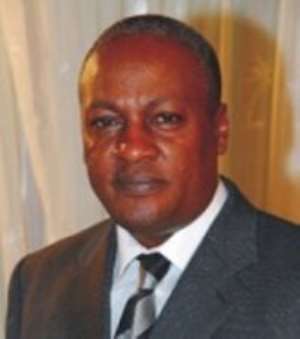
Ghana is referred to as the beacon of Africa when it comes to democracy.There are 10 regions in the country. Ashanti and Eastern regions are the strongholds of NPP, the largest opposition party in Ghana as of now.Volta region and some parts of the Northern region are the strongholds of the ruling NDC party.
The other regions are equally shared and normally decide which party rules Ghana especially Central region and Greater Accra region.Central region, to be precise Cape Coast was the seat of government before it was moved to Greater Accra region, i.e. Accra.
In 1992, NDC party led by Jerry John Rawlings won the general Election with 58.3% whereas NPP led by Professor Adu Boahene lost with 30.4%.
Rawlings (NDC) won 9 out of the 10 regions with 152 out of 200 seats in parliament. Adu Boahene cried foul in the election and instructed his Parliamentary candidates to boycott the parliamentary election.This boycott prompted the amendment of our constitution allowing both the presidential and parliamentary elections to be held the same day.
In 1996, NDC led by Rawlings won again with 57.4% and NPP led by Kuffour lost with 39.6% .
NDC again won 9 out of 10 regions with 137 majority seats in parliament compared to 63 seats of the NPP.
Prof Atta Mills , a sitting vice president of the NDC had 44.5% in 2000 elections whereas Kuffour of the NPP 46.1%.The election went into a run off because, none of the party won 50% plus 1 vote.
Kuffour eventually won 6 of the 10 regions including Greater Accra and Central regions with 56.9% and therefore became the president of Ghana.The incumbent party led by Professor John Evans Atta Mills lost with 43.1% .
NPP won 127 parliamentary seats, which was a clear majority in parliament compared to 73 of the NDC.
In 2004, Kuffour won 6 regions including Greater Accra and Central with 52.5%. Prof Mills who lost had 44.6%.
It is important to note that the results of the presidential elections are consistent with the number of seats won in parliament as well as the number of regions won. NPP had 125 out of 230 seats in parliament compared to 105 of the NDC.
NPP party, led by Nana Akuffo Addo in 2008 presidential elections had 49.32% whereas NDC, led by Professor Mills managed to get 47.76%.Since none of them won with 50% plus 1 votes the election went into a run off in a keenly contested election.Professor Mills emerged the winner with 50.23%.
NDC won 9 out of 10 regions with 113 seats in parliament out of 230 whereas NPP had 108 seats in parliament.
In 2012, similar trend emerged. NDC candidate John Mahama won 8 out of 10 regions with 151 out of 275 seats in parliament compared to 120 seats NPP had. 3 out of the 275 seats won by independent candidates are NDC members who contested as independent candidate, bringing the total NDC seats to 154.It is important to note that
138 seats are needed for majority in parliament.
In consistent with previous elections, NDC won 8 out of the 10 regions including Central and Greater Accra regions,which are the swing regions that determines who wins an election in Ghana since 1992.
It is against this background that I conclude, that John Dramani Mahama,the presidential candidate of the NDC party has genuinely won the election without any doubt.
The action of the leadership of the NPP is a strategy to win sympathy from their supporters, because , NPP performed poorly overall whereas NDC performed better in all regions even in NPP's stronghold Ashanti region and Eastern region.
The executives are afraid to lose their position,hence the need to do something to please their supporters at the expense of our peace and international reputation.
By Michael Frempong
(Political Analyst London)




 Supreme court declares payment of wages to spouses of President, Vice President ...
Supreme court declares payment of wages to spouses of President, Vice President ...
 Publish full KPMG report on SML-GRA contract – Bright Simons to Akufo-Addo
Publish full KPMG report on SML-GRA contract – Bright Simons to Akufo-Addo
 Kumasi International Airport to begin full operations by end of June
Kumasi International Airport to begin full operations by end of June
 Election 2024: Our ‘real challenge’ is getting ‘un-bothered’ youth to vote – Abu...
Election 2024: Our ‘real challenge’ is getting ‘un-bothered’ youth to vote – Abu...
 [Full text] Findings and recommendations by KPMG on SML-GRA contract
[Full text] Findings and recommendations by KPMG on SML-GRA contract
 Renegotiate SML contract – Akufo-Addo to GRA, Finance Ministry
Renegotiate SML contract – Akufo-Addo to GRA, Finance Ministry
 J.B Danquah-Adu murder trial: Sexy Dondon to Subpoena Ken Agyapong, Ursula Owusu
J.B Danquah-Adu murder trial: Sexy Dondon to Subpoena Ken Agyapong, Ursula Owusu
 Galamsey: Five Burkinabes jailed 20 years each for mining
Galamsey: Five Burkinabes jailed 20 years each for mining
 'It's no crime' – Abu Sakara defends Alan's exit from NPP
'It's no crime' – Abu Sakara defends Alan's exit from NPP
 'We know all your houses, pay your bills now or we’ll disconnect you; we're all ...
'We know all your houses, pay your bills now or we’ll disconnect you; we're all ...
